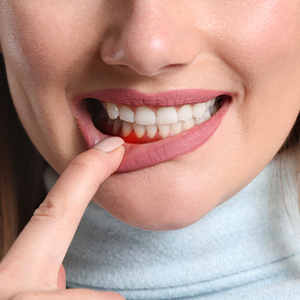How Genetics Influence Our Teeth
April 4, 2019
From the moment that we’re born, there’s always others saying just how much we take after mom or dad or a relative.

“You have your mother’s temper,” or “You have your uncle’s nose,” are versions of phrases that all of us hear during our life. We know that a number of our physical traits and our inclinations are attached to inherited causes, but have you ever questioned if the same goes for your teeth? The case is, the capacity for all of us to become susceptible to dental risks is enhanced whenever the issue is known to happen in your family. This also involves tooth decay, which is, in reality, the most prevalent long-term illness around the world.
If the following disorders develop in your family, let your dental professional know the next time you go in for an exam:
Signs and Symptoms of Oral Cancer
Of course, tobacco and alcohol use is the number one trigger when it comes to contracting oral cancer. Nevertheless, you should understand that oral cancer is an exceptionally deadly condition that kills thousands of individuals in the United States yearly. It’s been discovered that certain inherited genetic variations increase the chance of acquiring this problem.
▪ Dyskeratosis congenita is a syndrome which brings a strong chance of throat and oral cancer starting earlier than those who don’t have this condition.
▪ Fanconi anemia is a genetic blood condition that is simultaneously related to the growth of leukemia or aplastic anemia early on in life. Additionally, people who possess this disease are 500 times more likely to contract mouth cancer than people who don’t.
While the two inherited issues listed in this article have a tendency to develop in younger folks, the risk of mouth cancer generally escalates as we continue to age. Additionally, men tend to be two times as probable to get this sickness than females.
Symptoms of Gum Disease
The American Dental Association has claimed that genetics play a role in increasing your risk of establishing gum disease. When we fail to appropriately maintain the plaque that accumulates on our teeth, our gums begin to suffer. Symptoms of gum disease involve:
▪ Bad breath
▪ Missing teeth
▪ Swollen, sensitive gums
▪ Bleeding gums
Generally, gum disease develops in several stages. First, it is named as gingivitis, and it’s still relatively easy to fix by simply going to your dental professional for a regular exam and cleaning, followed up by excellent oral hygiene at home. The secondary level is known as periodontitis and this effects over 45% of Americans in the United States. At this point, the bone and tissue near the teeth begin to go away and that might cause the teeth to become loose. Aggressive periodontitis occurs once the person has failed to find aid. The bone and tissue in the mouth remain to be shed, though it begins transpiring at a faster rate.
Reasons For Crooked Teeth
The answer to what exactly creates misaligned teeth isn’t global. A number of men and women will state that it is familial. A daughter or son who is born to families with unusual or small-scale jawlines will carry an enhanced possibility of getting misaligned teeth. In cases like these, the misalignment of the teeth is a result of overcrowding, overbites, gaps, and underbites.
Meanwhile, a number of people may claim that crooked teeth are an outcome of additional concerns like poor diet, thumb sucking, mouth breathing, and environmental factors. And, if the child’s family neglects to show them great flossing and brushing skills starting from a young age, the likelihood of the child forming crooked teeth–as well as various other dental troubles–is elevated.
Preventing Tooth Decay
Like we detailed earlier in this article, tooth decay has been revealed to be the world’s most common chronic condition. But, similar to mouth cancer, your daily options play a large part in your probability of establishing tooth decay. That is not to say, though, that your risk for dental caries and also tooth decay has nothing to do with inherited genes. The gene beta-defensin 1 together with its alterations have been linked to tooth decay in developed teeth.
A number of households might place a lot less importance on carrying out a great dental routine, but cavities are effectively avoidable by adhering to these guidelines:
▪ Eating a nourishing diet
▪ Brushing your teeth two times a day
▪ Paying a visit to your dental professional approximately two times every year
▪ Flossing once daily
Still, what about those of us who brush and floss frantically yet we continue to end up needing to go to the dentist’s office for tooth troubles? A group of research workers from the University of Zurich has recently uncovered a genetic variation that cultivates imperfect tooth enamel, which in turn intensifies the prospect of forming dental caries.
Currently, scientists are investigating the chances of hereditary assessments to identify a particular person’s likelihood of developing certain diseases, including teeth issues. The American Dental Association has shared an evidence-based report of these discoveries on their website. Dr. Steven Offenbacher, one of the coauthors of this particular document, has said: “Most chronic diseases appear to be a result of multiple genes interacting with the environment (like poor hygiene).”
Having routine sessions with your dental practitioner isn’t only about having a routine cleaning and a free goody bag. Your dental professional is skilled in looking after the overall health of your mouth and seeing the first indications of the troubles explored within this short article, along with several additional issues. In the event that you haven’t done so as of late, our team encourages everyone to pay Dr. Faist a visit in the very near future, specifically if you have a family history regarding any one of the problems specified previously.
No Comments
No comments yet.
RSS feed for comments on this post.
Sorry, the comment form is closed at this time.
